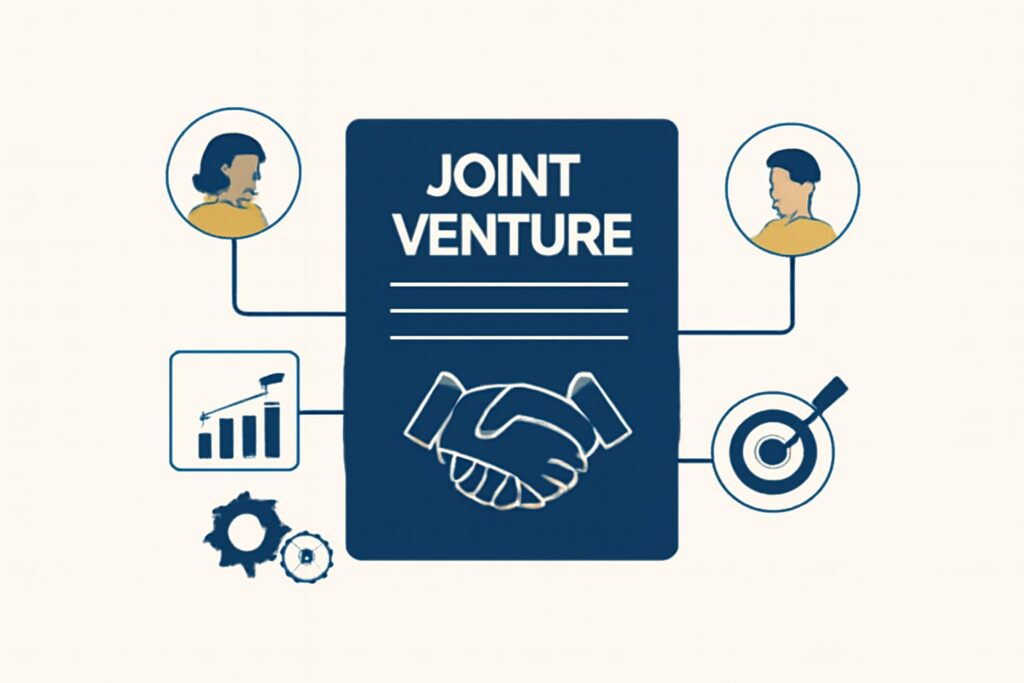Unlocking Potential: How Coaches Can Use Joint Ventures to Grow Faster

Joint Ventures · Coaching Growth Unlocking Potential: The Power of Joint Ventures for Coaches Joint ventures help coaches amplify reach, share resources, and co-create offers that move the needle—without going it alone. 8–10 min read Strategic Alliances Collaboration Introduction Joint ventures have emerged as a dynamic strategy for coaches looking to amplify their reach and enhance their offerings. By collaborating with like-minded professionals, coaches can create synergies that not only benefit their business but also enrich the coaching community as a whole. In this article, we will explore the essence of joint ventures, their benefits, and practical steps coaches can take to cultivate successful partnerships. Understanding Joint Ventures What is a Joint Venture? A joint venture (JV) is a strategic alliance where two or more parties come together to pursue a specific project while maintaining their separate identities. Definition: A JV can be formalized through a contractual agreement, detailing the terms, roles, and responsibilities of each party involved. Types of Joint Ventures ✓Equity Joint Ventures: Partners create a new entity, sharing profits and risks. ✓Contractual Joint Ventures: Partners collaborate without forming a new entity, relying on contractual agreements. Key Components of Success ✓Clear Objectives: Establish a shared vision and goals. ✓Effective Communication: Maintain open, frequent dialogue. ✓Trust & Transparency: Build on mutual respect and honesty. Tags: joint ventures · coaching collaborations · strategic alliances Benefits for Coaches Engaging in joint ventures can yield significant advantages for coaches, including: ✓Enhanced Resource Sharing: Pool knowledge, networks, and marketing capabilities. ✓Expanded Reach & Audience: Access partners’ clientele to increase visibility. ✓Innovative Collaborations: Combine unique strengths to create new offers. Figure 1.1 — Benefits of JVs ✓Share Resources ✓Increased Visibility ✓Innovative Offerings ✓Broader Audience Identifying the Right Partners ✓Complementary Strengths: Seek partners whose skills complement yours. ✓Shared Values & Goals: Align on mission and vision. ✓Reputation & Credibility: A solid partner boosts your brand’s trust. Real-World Examples Geotab & Vitality: Data-driven JV to optimize commercial fleet performance, showing the power of collaboration in a niche market. Volvo Group & Daimler Truck: European charging infrastructure JV, illustrating how large entities join forces for mutual benefit. Steps to Establish a Joint Venture 1Identify Potential Partners: Research and reach out. 2Define Objectives & Roles: Clarify goals and responsibilities. 3Draft a JV Agreement: Formalize terms and conditions. 4Launch & Manage: Execute, check in regularly, and evaluate progress. Overcoming Challenges Common Risks ✓Misalignment of Goals: Keep communication consistent. ✓Legal & Financial Disputes: Use clear agreements. ✓Cultural Differences: Respect working styles. Mitigation Tips ✓Define success metrics early. ✓Schedule governance check-ins. ✓Agree on exit/transition plans. Conclusion Joint ventures offer coaches a powerful way to expand reach, share resources, and innovate. By choosing the right partners and managing collaboration well, you can unlock new potential and accelerate results. You coach. We build. Clients come. Ready to explore a JV strategy tailored to your niche? Talk to a Strategist Frequently Asked Questions (FAQs) What is a joint venture, and how does it differ from a partnership? A joint venture is a collaborative agreement to work on a specific project, while a partnership is usually a more permanent, ongoing business relationship. How can coaches benefit from engaging in joint ventures? Shared resources, expanded audiences, and innovative co-created offerings. What are some successful examples? Geotab × Vitality; Volvo Group × Daimler Truck. What should I look for in a JV partner? Complementary strengths, shared values, and a strong reputation. What steps should I take to create a JV? Identify partners, define goals, draft agreements, and manage execution. What legal aspects matter? Clear contracts outlining roles, revenue share, IP, term, and exit.